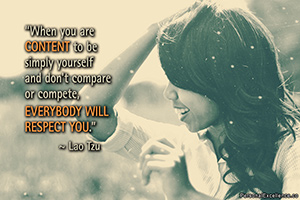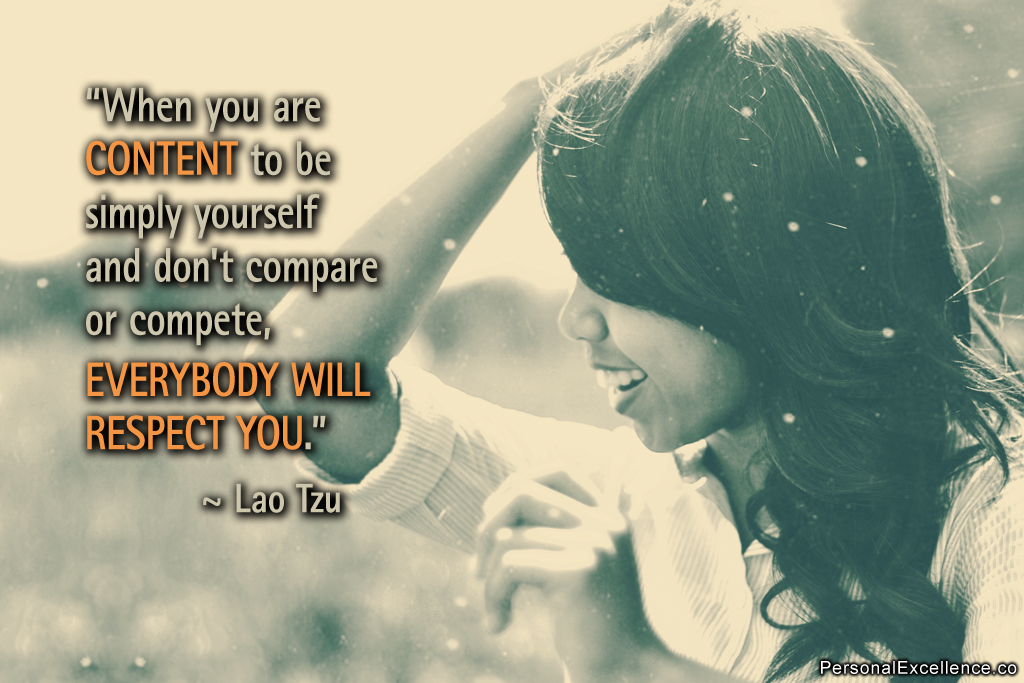
Commencement speeches have become outlets for sharing some of the most important life lessons ever. After listening to Steve Jobs‘ Stanford commencement speech, I was inspired to round up the best graduation speeches of all time, so all of you can enjoy the rich insights of the speakers.
You’ll probably recognize most of the speakers, who are prominent people in their fields – people like Steve Jobs, Bill Gates, Oprah, Ellen, Randy Pausch, JK Rowling, and so on. I think the schools couldn’t have picked better speakers than them, because the most important inspiration anyone can ever get is someone who his living by example. I’ve picked these 10 speeches because they share important wisdom that are applicable to anyone in any time, beyond just graduating students.
The 10 speeches are not ranked in any order. I have included videos and transcripts (where available) as well as my thoughts with each speech. My personal favorites are the ones by Steve Jobs, Arnold Schwarzenegger, and Randy Pausch.
1) Steve Jobs, Stanford University, 2005
(Read the transcript)
“Remembering you’re going to die, is the best way I know, to avoid the trap of thinking you have something to lose. You are already naked. There is no reason not to follow your heart.” — Steve Jobs
Whenever people talk about inspiring graduation speeches, Steve Job’s speech instantly comes up. In this speech, Steve shares his life lessons via 3 stories in his life. His birth, when he got fired from Apple, and when he found out about his cancer. These 3 stories were extremely inspiring – most people knew Steve as the hot-tempered yet charismatic CEO who heads Apple, but who would have known that his birth parents gave him up for adoption? That he quit college because his college fees were sucking up his parents’ savings? That he was once fired from the very company he founded? And that he diagnosed in cancer in 2004, and by a stroke of fate, survived it?
“Your time is limited, so don’t waste it living someone else’s life. Don’t be trapped by dogma — which is living with the results of other people’s thinking. Don’t let the noise of others’ opinions drown out your own inner voice. And most importantly, have the courage to follow your heart and intuition. They somehow already know what you truly want to become. Everything else is secondary.”
Steve reminds us that in life, there is really nothing we have to lose, because we were born with nothing to begin with. This is what I alluded to in my article How To Overcome Fear and Pursue Your Dreams. Eventually one day, all of us will die. Everything that we’ve come to see as important, will lose significance on that day. What would you wish you could have done then? How would you rather have lived your life? Take that and start living true to that today. Don’t live your life in regret, because life is not meant to be lived in regret. It’s meant to be live in passion, with love, with fire, conviction, and purpose. Don’t ever settle for what you don’t want; keep fighting for what you believe in.
Update Oct 7 ’11: Steve Jobs has since passed away on Oct 5 ’11, at the age of 56. I’ve written a tribute for him in remembrance of how boldly he had led his life, and the life lessons we can learn from him: In Remembrance of Steve Jobs: 11 Life Lessons We Can Learn From Him
2) Arnold Schwarzenegger, Emory University, 2010
“You’re going to find naysayers in every turn that you make. Don’t listen. Just visualize your goal, know exactly where you want to go. Trust yourself. Get out there and work like hell. Break some of the rules and never ever be afraid of failure.” — Arnold Schwarzenegger
Arnold is an international movie star (Conan, Terminator, Commando) and the 3eighth Governor of California. I found his speech very inspiring – he’s living proof of how one can overcome all odds to achieve one’s dreams, as long as you set your heart and mind to it. Arnie shared how important it is to not be afraid of failure. He shared his personal stories of how he overcame resistances from everyone and achieved his dreams, one after another, by first having that crystal clear vision of what he wanted, then going all out to achieve them. Truly, there’s no such thing as “can’t be done”. If you really want to achieve your dreams, they will be yours for the taking.
3) Randy Pausch, Carnegie Mellon University, 2008
Randy Pausch was a professor at Carnegie Mellon. He was best known for The Last Lecture: Really Achieving Your Childhood Dreams, and also co-author of the book with the same name, which became a New York Times best-seller. He was diagnosed with pancreatic cancer and was told in Aug 2007 that he only had 3-6 months to live. When he gave this speech at Carnegie Mellon, it was the ninth month. He later passed away 2 months after that.
Even though Randy’s speech was the shortest of the commencement speeches in this list (less than 6 minutes), it is in no way any less impactful. Randy’s reminder to all of us is the importance of living true to our dreams and pursuing them. That life isn’t about how long we live, but about how we live. His passion in living, teaching, and his relationship with his wife really shows through in his speech.
“We don’t beat the reaper by living longer. We beat the reaper by living well and living fully. For the reaper is always going to come for all of us. The question is: What do we do between the time we are born, and the time he shows up? Because when he shows up, it’s too late to do all the things that you’re always gona, kinda get around to.”
4) Michael Dell, University of Texas at Austin, 2003

(Read the transcript. Unfortunately there’s no video version of this speech.)
“[Now] it’s time for you to move on to what’s next. But you must not let anything deter you from taking those first steps. [D]on’t spend so much time trying to choose the perfect opportunity, that you miss the right opportunity. Recognize that there will be failures, and acknowledge that there will be obstacles. But you will learn from your mistakes and the mistakes of others, for there is very little learning in success.”
Michael Dell is the owner of Dell and one of the richest people in the world with a net worth of $14 billion. Michael studied in University of Texas at Austin (UT) but never graduated – he founded Dell when he was 19 and it became successful enough that he decided to drop out of UT to run it.
I found Dell’s speech extremely inspiring. It was filled with concrete, sound and extremely wise advice. He urges us to pursue our dreams, to listen to our heart, and to create our journey. Choose what you must, and embark on it right away. Don’t fall into the trap of analysis paralysis, because otherwise you’ll just be living a life of regret. At the same time, the journey is one of exploration and self-discovery:
“Then, as you start your journey, the first thing you should do is throw away that store-bought map and begin to draw your own. When Dell got started, it didn’t come with a manual on how to become number 1 in the world. We had to figure that out every step of the way. And with each new product and new market, the industry “experts” said we’d fail. Through the chorus of naysayers, we emerged as a world leader in servers, and we continue to gain momentum.”
Has there ever been a time when you’re not sure what you should do, when people give you conflicting advice, when you feel oppressed to do things that you don’t want? Remember, it’s up to you to take the step and identify what works best for you and what doesn’t, then adjust accordingly. At the end of the day, as long as you keep striving for the best that you can be, and learn every step of the way, you’ll never veer into the wrong track.
5) Bono, University of Pennsylvania, 2004
“For four years you’ve been buying, trading, and selling everything you’ve got in this marketplace of ideas. The intellectual hustle. Your pockets are full, even if your parents’ are empty, and — and now you’ve got to figure out what to spend it on. … So my question I suppose is: What’s the big idea? What’s your big idea? What are you willing to spend your moral capital, your intellectual capital, your cash, your sweat equity in pursuing outside […]?” — Bono
Bono is the lead singer in the famous rock band U2 and extremely well-known for his activism work in Africa. In his humorous yet passionate speech, he first urges everyone to find a cause to fight for, then shares the plights and injustice that people in Africa are facing. While the problems like extreme poverty and AIDs are deeply rooted and not going to be changed overnight, there are things that everyone of us can start doing immediately to alleviate the issue.
“… The world is more malleable than you think and it’s waiting for you to hammer it into shape. … We can’t fix every problem — corruption, natural calamities are part of the picture here — but the ones we can we must. And because we can, we must. Because we can, we must. Amen!”
The biggest takeaway I got from Bono’s speech is that it’s up to each of us to find a cause we’re passionate to fight for. What’s your cause? I’m most passionate about helping others grow. I hate it when I see people who are stifling their true selves and not living to who they can be; subsequently this is my life purpose what drives me endlessly. How about you? What are you most passionate about? What makes you come alive? Find it, then go and make it happen. Use your skills, your knowledge, everything you’ve learned, and make real, meaningful change with them. That’s when you come alive, and that’s when you make the world come alive.
6) JK Rowling, Harvard, 2008
Part 1 (10 min)
Part 2 (5:16 min)
Part 3 (5 min)
(Read the transcript)
“You might never fail on the scale I did. But some failure in life is inevitable. It is impossible to live without failing at something, unless you live so cautiously that you might as well not have lived at all. In which case, you fail by default.” — JK Rowling
JK Rowling is the famous author of the highly successful Harry Potter series, and is also well known for her rags-to-riches story, where she grew from living in poverty to a multi-millionaire in 5 years. Today her net worth is estimated to be at least $1 billion. In this speech, she shares her story of how she fell to the rock bottom when she was 27. Her marriage had failed after just 1 year, she was a single parent, she was extremely poor, and she was jobless. It was at her lowest point in her life, and she contemplated suicide.
Yet this failure had given her the solid foundation to build her life. Because she had failed on such an epic scale, there was nothing else there. It helped her to cut away the inessential, see beyond the unimportant and focus on the important – which was (a) her daughter, and (b) writing her fantasy novel (the Harry Potter series, which would later propel her to success). What matters the most to you in life? Are you pursuing that? Or are you letting the fear of failure prevent you from doing what you love?
We do not need magic to change the world, we carry all the power we need inside ourselves already: we have the power to imagine better.
Rowling also shared about her experience working at Amnesty International, where she witnessed the darkest as well as the best sides of humanity. The biggest magic we have is the ability to touch others’ lives, and it’s something that we already have the power to do. If you’re reading this, that means you’re more privileged than a big part of the world out there, who have difficulty even getting the bare essentials to live. Will you waste away this power? Or will you use this power to a better cause? The power of choice lies in us.
7) Ellen DeGeneres, Tulane University, 2009
If you don’t know Ellen, she is one of the most famous talk show hosts in the world (right up there with Oprah). She started out as a stand-up comedian and had her own TV sitcoms back in the 1990s to early 200s. Her show, The Ellen DeGeneres Show, has won 12 Emmys. It’s incredibly inspiring to see her amazing work and how she has influenced millions of lives around the world.
(Update: This post was written before the issues regarding The Ellen Show’s toxic workplace environment came to light in 2020.)
Ellen’s speech is filled with her trademark characteristics — her wit, humor as well as her dancing (at the end).
“Really when I look back at it I wouldn’t change a thing. I mean it was so important to me to lose everything because I found out what the most important thing is – To be true to yourself. Ultimately that’s what’s gotten me to this place. I don’t live in fear, I’m free, I have no secrets, I know I’ll always be okay because no matter what, I know who I am.” — Ellen
While Ellen’s speech was humorous, she also weaved in important lessons from her life. She talked how she had no direction and no ambition when she was young, and it wasn’t until a tragic event that things changed. Her girlfriend (Ellen is gay) died in a car accident when she was 21, and for a while after that she did some deep soul searching, and realizing how fragile life was. She decided she wanted to do stand-up (comedy) afterward, and set out to be the first woman to be on Johnny Carson’s show (the biggest comedian at that time). Several years later it happened, and her TV career took off, only to come crashing down when she came out in 1997 that she was gay. For 3 whole years, she did not get booked for any jobs, and in the end she rebuilt her career to be bigger and better than it ever is.
The key message in Ellen’s speech is to be true to yourself. Find your inner self, know who he/she is, and embrace him/her. Be free, have no secrets, and be who you want to be, because life is too beautiful to be experienced otherwise. Live with integrity, and be an honest and compassionate person. If you are true to yourself and follow your passion, nothing can ever stop you in your way.
8) Bill Gates, Harvard, 2007
(Read the transcript)
Bill Gates needs no introduction – he’s one of the wealthiest men in the world (second wealthiest as of 2010, right after Mexican tycoon Carlos Slim Helu). He owns Microsoft, which earns $62 billion a year, and is also a highly influential philanthropist, having donated billions to health causes through his foundation Bill and Melinda Gates Foundation.
“If you believe that every life has equal value, it’s revolting to learn that some lives are seen as worth saving and others are not. We said to ourselves: “This can’t be true. But if it is true, it deserves to be the priority of our giving.” ” — Bill Gates
In his heartfelt speech, he shared his passion about the inequities of the world – referring to the injustices and unfairness, such as poverty, suffering in third world countries, diseases, lack of healthcare support, etc. I applaud Bill Gates for making this the topic of his commencement speech and bringing awareness to the issue of inequities, because (a) It’s not what one would expect in a commencement speech. Most were probably looking for advice on achieving success in life. (b) He took the risk of boring the audience, since it was not a topic most people were interested in. I had a deeper respect for him after reading his speech.
“Even with the advent of the Internet and 24-hour news, it is still a complex enterprise to get people to truly see the problems. When an airplane crashes, officials immediately call a press conference. They promise to investigate, determine the cause, and prevent similar crashes in the future.
But if the officials were brutally honest, they would say: “Of all the people in the world who died today from preventable causes, one half of one percent of them were on this plane. We’re determined to do everything possible to solve the problem that took the lives of the one half of one percent.”
The bigger problem is not the plane crash, but the millions of preventable deaths.”
The media today dramatizes on specific incidents and events – which are just a fraction of what’s occurring around the world today. Stop using media as the filter to our world, and instead look out there to understand what’s happening around. Then pick a cause that you’re most passionate about, and pursue that in full throttle. That’s how we start making that difference.
9) Oprah Winfrey, Stanford University, 2008
(Read the transcript)
“I consider the world, this Earth, to be like a school. And our life, the classrooms, and sometimes on this planet Earth school, the lessons often come dressed up as detours, or roadblocks, and sometimes, as full blown crises. And the secret I’ve learned to getting ahead, is being open to the lessons – lessons from the grandest universe of all, that is the universe itself.” — Oprah Winfrey
Everyone knows Oprah – She’s arguably the most influential woman in the world, and owner of the most successful TV talkshow in the world, The Oprah Winfrey Show. In Oprah’s speech, she shares 3 powerful lessons from her life (If you want to skip straight to Oprah’s speech, fast forward to 3:24min in the video). The first is about the importance of being true to who we are. When she started her TV career at 22, she never felt she was at home. She tried to emulate Barbara Walters (another TV host). There were differing expectations from her manager and her father on what she should be. Her news director wanted to change her name to “Susie” because “Oprah” didn’t seem marketable.
In the end she decided to stay true to who she was, and just be herself. Her feelings became her GPS in assessing whether a decision was right or wrong. She learned to listen to her intuition and tune out what others around her were asking her to do. It turned out to be the best thing she could ever do. If you ever feel that you’re at a loss of what to do, get still, “very still”, and the answer will come to you eventually.
“Don’t react against a bad situation; Merge with that situation instead. And the solution will arise from the challenge. Because surrendering yourself doesn’t mean giving up, it means acting with responsibility.” — Eckhart Tolle, A New Earth
The second lesson is to learn lessons from failure. Every failure, every experience is there to teach you something. In Oprah’s case, she was starting a new school in Africa, and was very focused on creating a beautiful environment for the kids, until one day she was told that one of the girls was sexually abused. She broke down, and rather than let the incident take over her, she thought about what there was to learn from the situation. She learned that she had been focusing on the wrong things – trying to build the school from outside in, rather than inside out, and this led her to change her approach from there on. If you lose yourself with the bad situations that hit you, you’d have lost there and then. But if you take a lesson, at least one lesson with every experience, you’d have emerged a stronger and better person.
The third lesson is on finding happiness. What makes you happy? In Oprah’s speech, she shared that happiness is achieved when you give something back to others. Did you know how Stanford came to be? The university was founded in 1885 when the Stanfords lost their child a year earlier, and decided in their grief to build a school, and treat the children in the school as theirs. Because of their kindness, they have forever changed ten thousands of lives directly, and millions as a corollary to that. For me happiness is when I help others to achieve their highest potentials and live their best lives. This is why I dedicated my life to this cause, and I know I’m happiest than I’ve ever been just doing this.
However, I believe that service is not necessarily everyone’s calling, and it’s most important to do what makes you happy, vs. blindly serving others just because that’s what other people say. That’s no different from an unconscious life. Think about what makes you happy – In your ideal life, what will you be doing? What’s your passion? Pursue that, because it’s the most important thing you can ever do in your life.
In the first week of Live a Better Life in 30 Days, we envision our ideal life, set our ideal life goals, design our life map, and create our action plan to achieve our goals.
10) Larry Page, University of Michigan, 2009
(Read the transcript)
Larry Page is the co-founder of Google, the #1 search engine in the world. He’s part of the reason why all of us get such seamless web searching experience today :D. In his heartfelt speech, he shared how he created Google. It all started out with a dream – literally, a dream while he was sleeping. When he woke up in the middle of the night, he had a sudden idea to download the web. He immediately wrote down the idea and approached his advisor later. From there, Google was born. He had a dream, and rather than brush it aside, he took action on it.
“I think it is often easier to make progress on mega-ambitious dreams. I know that sounds completely nuts. But, since no one else is crazy enough to do it, you have little competition. There are so few people this crazy that I feel like I know them all by first name. They all travel as if they are pack dogs and stick to each other like glue. The best people want to work the big challenges.” — Larry Page
Larry also shared the importance of treasuring our families and friends. He lost his dad to polio when he was 23, which left him devastated. Where are your families and friends? How’s your relationships with them? While we’re pursuing our dreams and ambitions, don’t forget our relationships. As I wrote in the Life Wheel, our life is made up of 11 segments, including family, social and love. Our lives can never truly the best if we neglect any one segment, so make sure you use the wheel as your guide every step of the way.
Share With Others
If you found this post useful, share with others via Twitter and Facebook buttons below! Let’s spread the wisdom to people around us!
This is part of the Inspiration & Motivation series. Check out the other articles in the series:
- 10 Powerful Graduation Speeches You Don’t Want To Miss
- 13 Meaningful Movies With Life Lessons To Learn
- 20 Amazing Commercials To Inspire the Greatness in You
- 56 Most Inspirational Songs of All Time
- 15 Beautiful Inspirational Wallpapers For Your Desktop
- 15 More Beautiful Wallpapers With Positive Affirmations
- 101 Inspiring Quotes of All Time
- 101 Things To Do Before You Die
- 101 Ways To Be a Better Person
- 101 Ways To Live Your Life To The Fullest
- 101 Important Questions To Ask Yourself in Life
- 101 Life Principles to Live By Daily
(Images: Graduation speech, Michael Dell, Bono)









 Thanks for reading. If you like my free articles, join my private email list and get my latest updates and articles sent right to your inbox.
Thanks for reading. If you like my free articles, join my private email list and get my latest updates and articles sent right to your inbox.